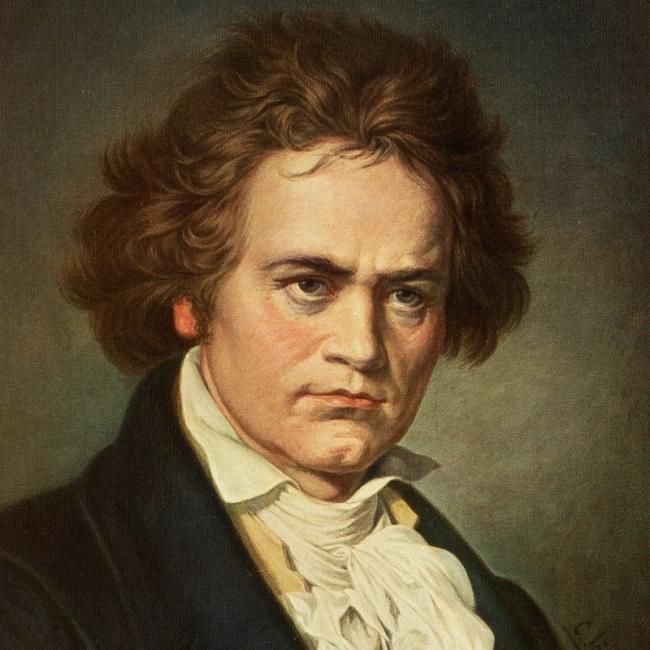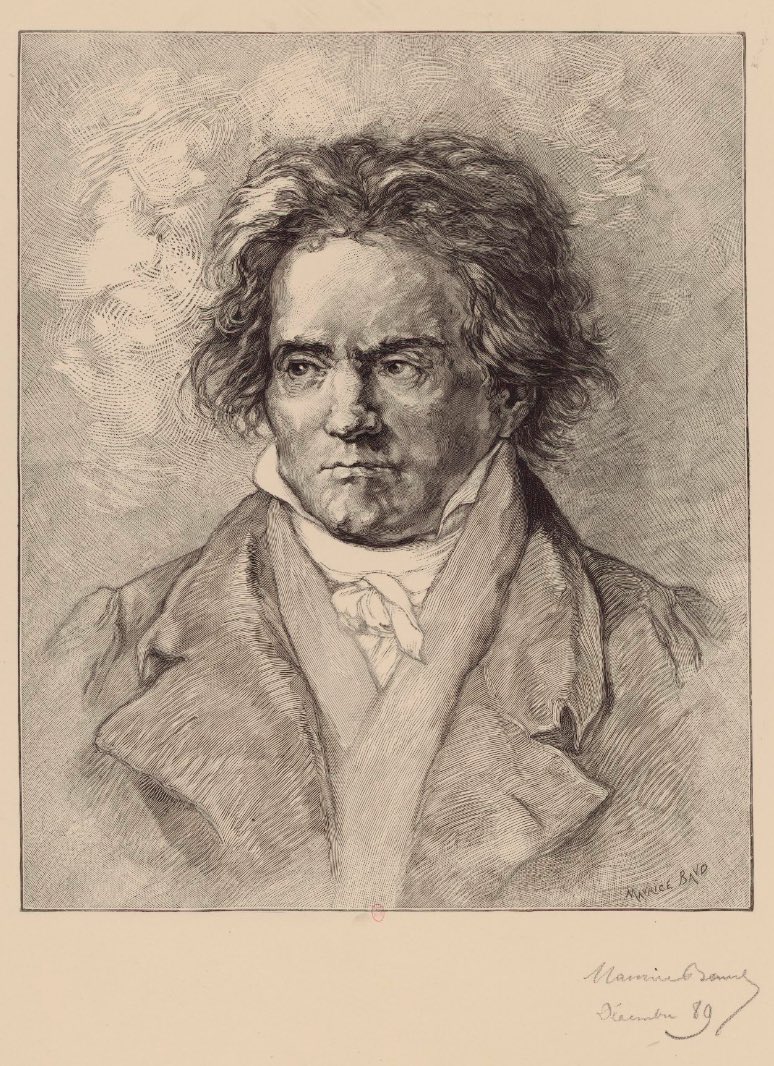Today, on #TheoryThursday, (I know it is Friday but as I wrote the text yesterday, I refuse to change it) allow me to say a few words on musical theory itself, on the textbooks which have been used throughout the ages, and on their influence on the music of the masters.
1/16
1/16
Schoenberg denounced theorists and proclaimed the Living Art as the source of ever-evolving musical laws—'tis not for the theorist to decide which rules music should adhere to. Debussy said that “Les oeuvres d'art font les règles, les règles ne font pas les oeuvres d'art”.
2/16
2/16
In part, I subscribe to this view, in that theorists should not be lawmakers, that they do not decide the course of musical history—but they can document it, and in this regard their work is very valuable, as long as their advice is not heeded like tables of the law.
3/16
3/16
I warmly recommend the following literature on musical theory, works that either did shape the works of Art, although the rules they proclaimed were frequently broken, or works that are documents of how the musical language developed throughout the ages.
4/16
4/16
I. Gradus ad Parnassum
An influential treatise on musical theory and counterpoint specifically (in its second half). Both Bach and Beethoven are known to have studied this text and almost all subsequent instructive literature on counterpoint is indebted to this work.
5/16

An influential treatise on musical theory and counterpoint specifically (in its second half). Both Bach and Beethoven are known to have studied this text and almost all subsequent instructive literature on counterpoint is indebted to this work.
5/16


Though counterpoint has a reputation as one of the driest and restricted musical disciplines, the form in which this book is written—a dialogue between master and pupil—is not a dull way to present theory. In addition, Fux stresses the importance of practice over theory.
6/16
6/16
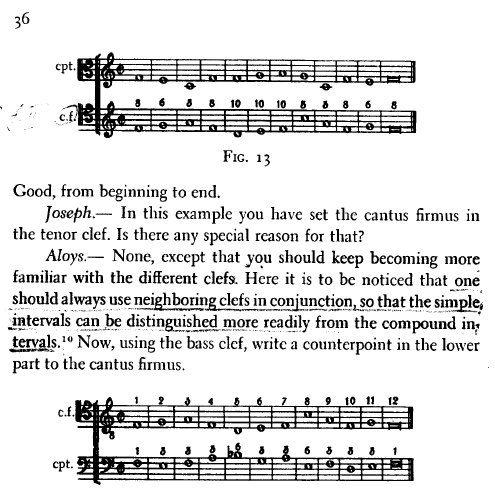
II. Traité de haute composition musicale
Ideas proposed by Reicha included polyrhythm and polytonality, which his contemporaries (1826) were not yet ready to properly accept.
7/16

Ideas proposed by Reicha included polyrhythm and polytonality, which his contemporaries (1826) were not yet ready to properly accept.
7/16


Anton Reicha fell into obscurity after his death, and his many of his works, some very adventurous and advanced indeed, have yet to be studied.
8/16
8/16
III. Treatise on Instrumentation
This famous work by Berlioz minutely describes all the instruments of his day and the potential each possessed. The work was later revised and augmented by Richard Strauß to reflect contemporary developments.
9/16



This famous work by Berlioz minutely describes all the instruments of his day and the potential each possessed. The work was later revised and augmented by Richard Strauß to reflect contemporary developments.
9/16




In his revised version, Strauß made a point of including many examples of Wagner, whose great contribution to musical development—beside his other great contributions like the harmonic and the motivic—consists of the rich and sumptuous colours he employed.
10/16
@irishpianoman


10/16
@irishpianoman
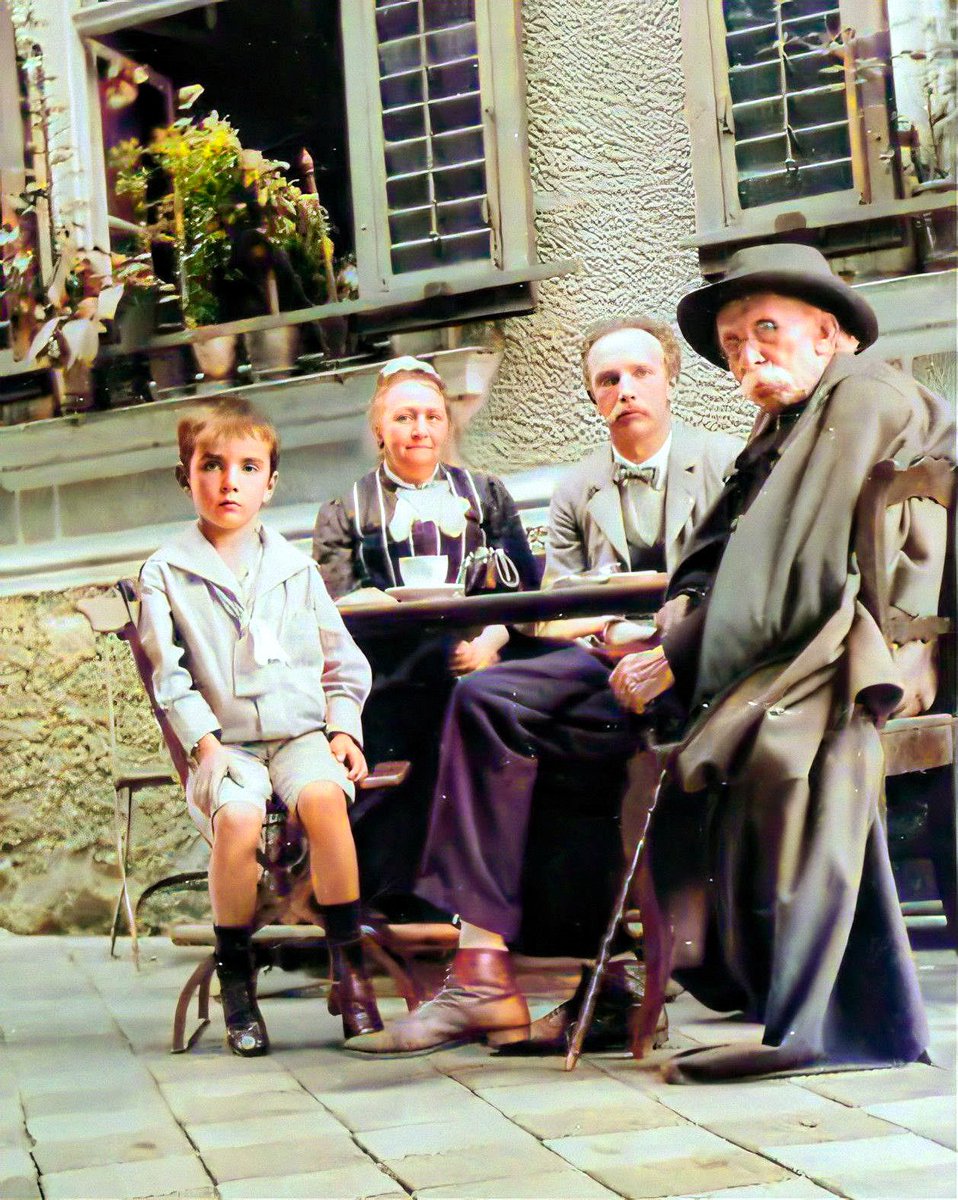


IV. Theory of Harmony
Schoenberg's masterpiece of harmonic theory, widely admired and even the inspiration for a contemporary masterpiece (bearing its original German name) written by @HellTweet.
11/16
Schoenberg's masterpiece of harmonic theory, widely admired and even the inspiration for a contemporary masterpiece (bearing its original German name) written by @HellTweet.
11/16
Schoenberg‘s work is part theory, part philosophical treatise (its scope goes far beyond what I can say here) and sets out not to formulate rules but to teach the pupil the language of the masters, seeking to explain why these rules have evolved and their possible future.
12/16



12/16

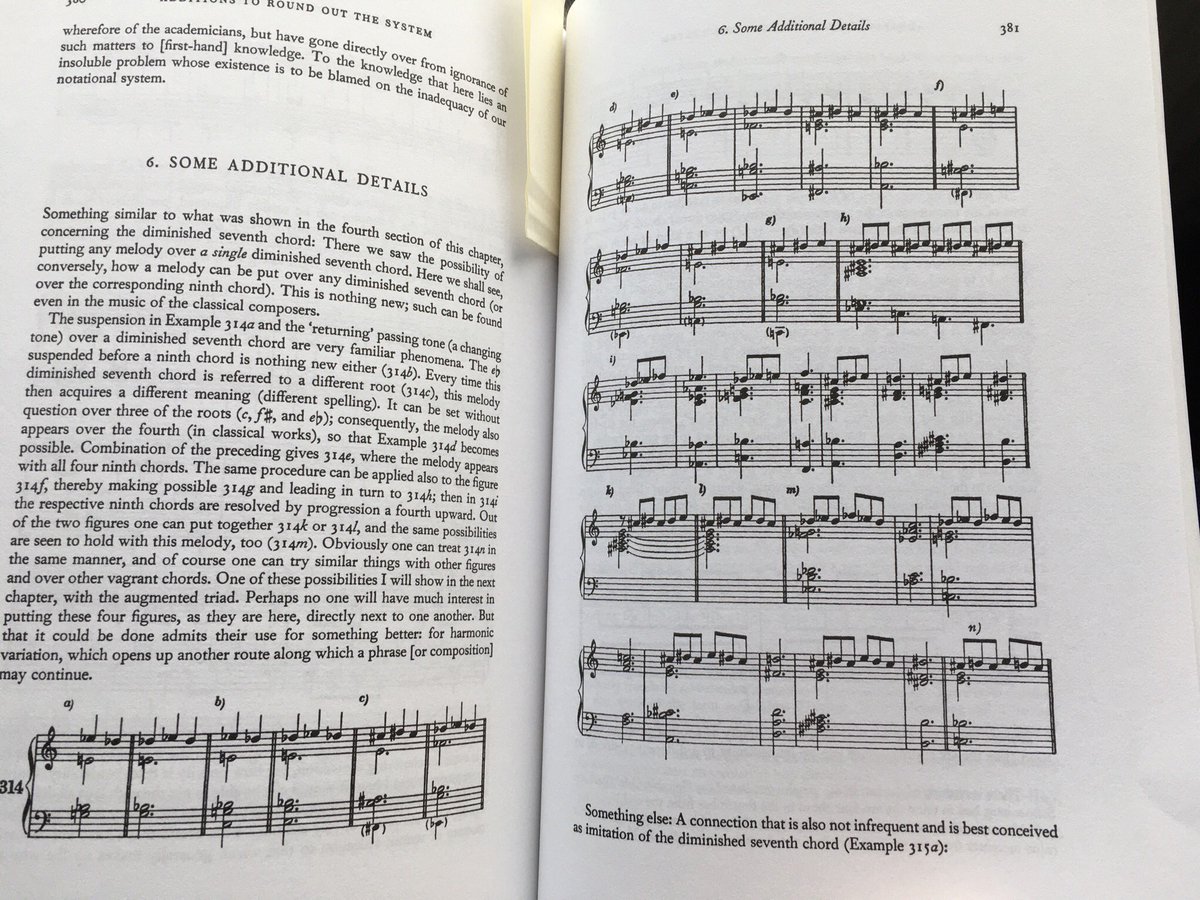


V. Structural functions of Harmony
Like “Theory of Harmony”, this work is marked by being both simple and extremely thorough. Interesting is how the work explores the direct compositional applications of simple and complex harmonic progressions.
13/16


Like “Theory of Harmony”, this work is marked by being both simple and extremely thorough. Interesting is how the work explores the direct compositional applications of simple and complex harmonic progressions.
13/16



Schoenberg wrote many other marvellously clear and useful theoretical works, among which are Fundamentals of Musical Composition, Preliminary exercises in Counterpoint and Style and Idea—the latter being a collection of essays displaying Schoenberg's unique insight.
14/16


14/16



As a bonus, I would also like to add Max Reger‘s “Beitrage zur Modulationslehre” to this list, although I have not yet had the pleasure of reading it. Schoenberg mentions it in his “Theory of Harmony”, however, praising Reger‘s efforts.
15/16

15/16


I hope you enjoyed this thread, if you know of any textbook which you feel should have been on this list—I admit I have but shown few books—feel free to add the name of this volume below.
#TheoryThursday
16/16
#TheoryThursday
16/16
• • •
Missing some Tweet in this thread? You can try to
force a refresh





